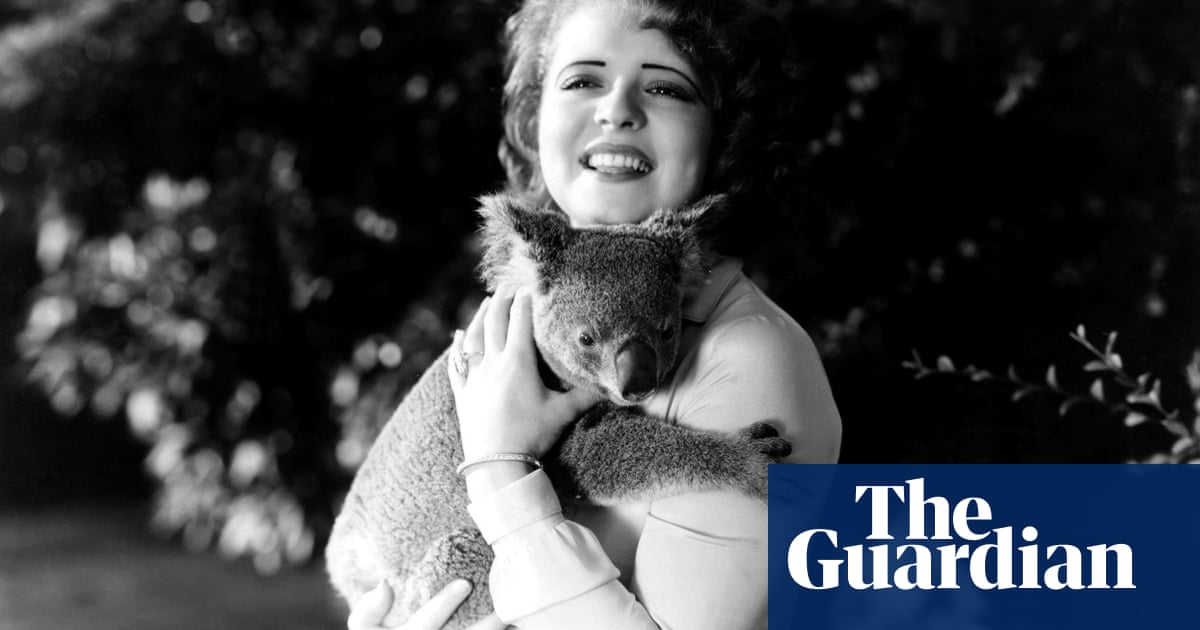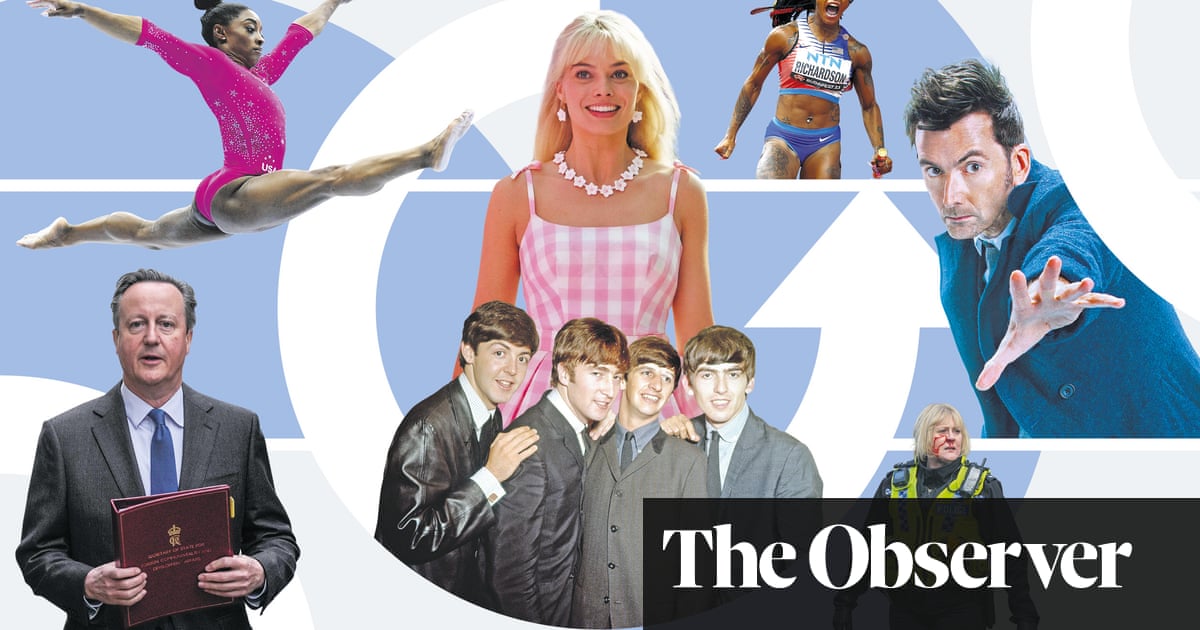
1) 1984: the tournament shaped by ‘old men’
It is perhaps an exaggeration to call the first women’s European Championship a tournament given that the finals – staged between 8 April and 27 May 1984 and known as the European Competition for women’s football – involved only four teams. Matches were over two legs and staged home and away. This dictated that the Euros were spread across Denmark, Italy, England and Sweden, with England’s matches staged at Crewe’s Gresty Road (the venue for a victory against Denmark) and Luton’s Kenilworth Road.
Luton was where a championship in which Uefa decreed that matches must be limited to 35 minutes a half and played using a smaller, size four, ball, reached its denouement, with Sweden beating an England side managed by the late Martin Reagan 4-3 on penalties. The undisputed star of the Euros was Sweden’s forward Pia Sundhage, the top scorer with four goals.
Now 62 Sundhage is the manager of Brazil women and has had stints in charge of Sweden and the United States. Indeed Euro 1984 would prove something of a breeding ground for future managers. Hope Powell, later England’s coach and now at the helm of WSL Brighton, was a 17-year-old midfielder at the heart of Reagan’s team, and the Italy striker Carolina Morace manages Lazio and has previously coached Italy, Canada and Trinidad and Tobago.
Powell has mixed memories of the final’s second leg, played in front of a crowd of 2,567. “The pitch was absolutely shocking,” she recalled. “The ball kept getting stuck in the mud or pools of water and the penalties were very difficult.” The Denmark forward Annie Gam-Pedersen, now 57, experienced difficulties in adjusting from the 90-minute matches then routine for leading European women’s teams to 70 minutes. “They were all old men and, to let us play, we could have only have 35 minute halves and smaller balls,” she said. “It was quite a challenge.”
It is said that the past is a different country but when it comes to women’s football in England, 1984 appears a parallel universe. Reagan, once a professional footballer for, among other clubs, Norwich and employed on a part-time basis with the Lionesses, reflected shortly before his death at the age of 92 in 2016: “In England in the 1980s many girls were actively discouraged from playing football; it was far from easy for girls to take up the game.”
Back then the idea of women turning professional seemed laughable and the careers path followed by key components of the team that ran out at Luton included commercial artist (Terry Wiseman), office clerk (Carol Thomas), civil servant (Linda Curl), sales assistant (Brenda Sempere) and electronics engineer (Liz Deighton). With the general public largely unaware of the event, national newspaper coverage amounted to, at most, a single-paragraph mention of the final in the daily football round-up.
2) 1991: Neid shines for unified Germany
Almost two years after the fall of the Berlin Wall a united Germany prevailed, beating Norway 3-1 in extra time in front of a crowd of 6,000 in Aalborg, Denmark, in the final of a four-team tournament also involving Denmark and Italy. The action was crammed into five days, spanning 10-14 July, in what served as a European qualifier for the first official Women’s World Cup, held in China that November. With the first four international female referees not appointed by Fifa until 1994 and female officials not deployed in the Euros until 1997, the late James McCluskey, then widely recognised as Scotland’s top referee, had a key role, officiating in the rebranded Uefa Women’s Championship. This name change reflected Uefa’s decision to fully embrace the women’s game and in 1997 it expanded the tournament to eight teams.
West Germany had won the 1989 Euros but had switched name to Germany by 1991 after embracing an East German federation which had played only one senior women’s football international – a 3-0 defeat by Czechoslovakia. Germany’s undisputed star was Silvia Neid, a midfielder who scored in extra time against Norway and won 111 caps before becoming her country’s manager in 2005. Now 58 and retired, Neid can reflect on a glittering career which saw her named Fifa women’s coach of the year in 2010, 2013 and 2016.
3) 2005: ‘it would sell’ controversy in Lancashire
As Germany prepared to beat Norway 3-1 to win their fourth straight Euros – and sixth in total (one as West Germany) – in front of 21,105 assembled at Blackburn’s Ewood Park, Lennart Johansson rather put his foot in things. Forty-eight hours before the final of an eight-team tournament staged in Blackburn, Blackpool, Manchester, Preston and Warrington, the Uefa president mused on the marketability of female footballers. “Companies could make use of a sweaty, lovely looking girl playing the game in rainy weather,” he said. “It would sell.” Although his remarks prompted a certain outcry it remained extremely muted by today’s standards. The English Football Association used the slogan “a more beautiful game” to market the tournament and was anxious to impart the message that playing football and being feminine were far from incompatible.
Germany were simply efficient; so much so that goals from Inka Grings – the tournament’s top scorer – Renate Lingor and Birgit Prinz, comfortably overcame Norway at the end of a fortnight which had seen Hope Powell’s England finish bottom of Group A after a win against Finland and defeats by Denmark and Sweden. At least by then though Powell had been installed as the Lionesses’ first full-time manager and an attendance of 29,092 at the City of Manchester Stadium for England’s opening game – featuring Karen Carney bewitching fans and bewildering Finland – emphasised the female game’s potential. Meanwhile Wendy Toms, made a welcome appearance, refereeing France’s 3-1 Group B win against Italy at Preston’s Deepdale. In the 1990s Toms, now 59, had made history by becoming the first female assistant referee in the men’s professional game, running the line in the Football League and, later, the Premier League.
4) 2009: Powell endless battle is rewarded
Germany were so confident of victory against Powell’s Lionesses that they had victory T-shirts printed before taking the field in front of 15,877 inside Helsinki’s Olympic Stadium. England possessed a strong squad including Kelly Smith, Carney, Jill Scott, Fara Williams, Eni Aluko, Casey Stoney and Rachel Brown (now Brown-Finnis) but were no match for their old enemy.
With Grings, the six-goal golden boot winner, and her attacking partner Prinz each scoring two, Germany easily rendered goals from Carney and Kelly academic.
Staged in Helsinki, Turku, Tampere and Lahti between 23 August and 10 September, the 2009 edition saw the tournament expanded from eight teams to 12 and England’s achievement in reaching the final two should not be underestimated. Much of that was down to Powell. The first woman in Britain to acquire coaching’s blue-riband qualification, the Pro Licence, she fought hard, and relentlessly, against the FA’s blazer-wearing old guard to create a proper infrastructure for female players in England.
Powell was, at one point, also responsible for the women’s Under-23s, Under-19s, Under-17s and Under-15s, and her vision ensured sports scientists and psychologists became involved with the Lionesses for the first time. Mo Marley, who had a spell as Powell’s assistant and took caretaker charge of England, said: “Reaching the 2009 final was a culmination of years of hard work on Hope’s part. It was always a battle but she worked so hard to get specialist people on board and started to get some sort of equality.” Significantly 2009 marked a key watershed in that the FA finally offered England players central contracts, dictating that they were effectively professional and no longer needed to rely on day jobs to maintain a roof over their heads.
5) 2013: the final with three teams on the pitch
The 11th edition of the women’s Euros was the first in which three teams appeared on the pitch during the final. As an injury ravaged, very young Germany triumphed 1-0 against Norway, half-time was enlivened by Sundhage’s Sweden running out to thank the crowd at the Friends Arena in Solna, just north of Stockholm, for their support during a rousing run to narrow semi-final defeat by Germany and receiving a rapturous, spine-tingling ovation. It had originally been intended that the Friends Arena would be only partially open for the final, with no more than 30,000 expected, but, as interest soared, it was extended to full 50,000 capacity.
This decision was vindicated as 41,301, a record women’s Euro attendance, turned up to see the 34-year-old Nadine Angerer, almost everyone’s star of the tournament, keep her fifth clean sheet, saving two penalties either side of Anja Mittag’s 49th-minute winner as Neid’s side recorded their sixth straight Euro success in the 25C July heat. After spending the first decade of her senior career as an international understudy Angerer relished this personal moment in the sun. “This was the tournament which showed me what you can achieve if you’ve got good team spirt,” she recalled. “We definitely weren’t the best team in Sweden but we won because we were a proper team and that made me so proud. It was actually the most important tournament I ever played in.”
With Norway – the only team to evade Angerer’s grasp thanks to a 1-0 group stage win – pushing their opponents all the way, the final was a high-calibre contest, fully justifying not only England’s unprecedented extensive live television coverage on BBC Two and BBC Three but Sweden’s decision to create fan zones equipped with giant screens showing matches across the tournament’s seven host towns and cities.
Powell’s side disappointed English audiences, finishing bottom of Group C beneath France, Spain and Russia. With some senior players rebelling against the coach’s increasingly dictatorial approach, Powell’s 15-year tenure ended in August 2013. By early December Mark Sampson, a then 31-year-old Welshman, who had led Bristol Academy (now Bristol City) to unexpected heights, took over. His four-year, reign ended amid considerable controversy and acrimony but it raised the bar for a significantly improving England as they reached three successive major tournament semi-finals (the last under Phil Neville) and, winning public hearts and minds aplenty along the way, collected bronze medals at the 2015 World Cup in Canada.
6) 2017: rich entertainment in Enschede
The best was saved for last in the Netherlands as Euro 17’s most exciting game proved a peerless advertisement for women’s football and turned the hosts into deserved, if surprise, continental champions. Arsenal’s Vivianne Miedema scored twice for the Oranje but her outstanding contribution was one of many during a breathlessly exhilarating evening on which Denmark offered a masterclass in losing gallantly as the Netherlands collected their first major trophy.
After three weeks of often cagey football, inhibition was thrown to the wind with both finalists evidently deciding attack was the best form of defence in front of a 28,000 crowd in the eastern Netherlands city of Enschede. “It was a great match between two teams that really wanted to play and really wanted to attack,” said Sarina Wiegman, the Oranje coach currently in charge of England. “Now we’re going to party really hard.”
The final had been expected to involve Germany – unbroken champions over the previous 22 years – France or maybe even England. Instead Wiegman’s women deconstructed Sampson’s England in the semi-finals after the Greenlander Nils Nielsen’s Denmark had shocked everyone by ending Germany hegemony in the quarter-finals. England’s consolation came in the shape of their striker Jodie Taylor’s golden boot after she scored five goals.
Denmark’s Nadia Nadim – a refugee from Herat, Afghanistan, where her father had been executed by the Taliban – opened the scoring in the final with a sixth-minute penalty. Watched by, among many other Dutch luminaries, Marco van Basten and Louis van Gaal, Miedema equalised before the Barcelona winger Lieke Martens, a star of the tournament and outstanding in the final, put Wiegman’s side 2-1 up. Although Pernille Harder equalised, further goals from the excellent Sherida Spitse and Miedema sealed it for the Oranje “At times we were like Bambi on ice,” said Nielsen. “But I’m very proud; sometimes the other team is just slightly better. I enjoyed it.” He was not alone.












